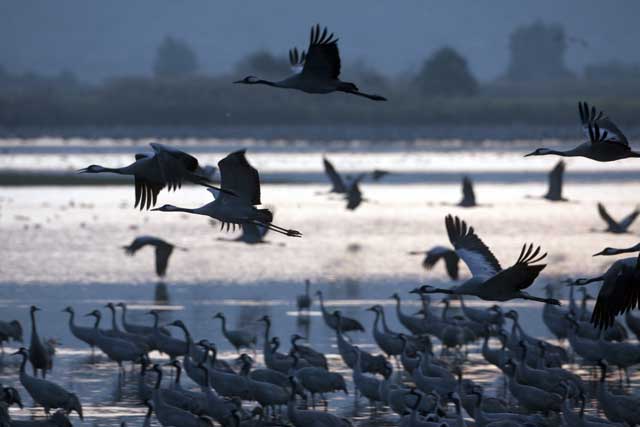Best nature and environment books for Christmas

Nature writing tries not only to describe what is going on but to convey its impact on the viewer. The trend has been towards emotional engagement. When it works, the result can be compelling. This release of the would-be poet embedded in the Barbour-jacketed form of the wanderer is not of course confined to birders and botanists. At best, this amounts to a genuine rediscovery of rural writing, informed by the media and travel, as well as the growth of inner perceptions. As literature, it is progress. As science, there's a danger of facts turning into fudge.
The best "new age" nature book this year is The Running Sky (Cape. £16.99), by hard-core birder Tim Dee. It is a series of biographical essays on his birding life, his heroes and his favourite places, vividly told with a sense of growing engagement with our feathered friends. They start as statistics but end as "ductile cartwheels unleashed across the sky... conjured balls of starlings rolling out and up... a black bloom burst from the seedhead of birds."
Michael McCarthy's Say Goodbye to the Cuckoo (John Murray, £16.99) is a down-to-earth look at what is happening to our migrant songbirds through the eyes of an investigative journalist. McCarthy asks people with attachments to a favourite bird about the their captivation. The result, until near the end, is more of a celebration of Britain's birdlife than the tragedy of the disappearing cuckoo. But, when asked what it would mean if, one spring, the birds did not come back, most interviewees were lost for words.
For many people nature somehow never became part of their lives. Carefree childhoods spent roaming the countryside far from parental supervision have become distant memories. How have we let it happen? In his The Bumper Book of Nature (Square Peg, £17.99), Stephen Moss defiantly sets out the delights of the outdoor life, climbing trees, building dens and dipping into rockpools and ponds. Pitched at parents as much as children, it is an unashamed pitch for the free-range life that children in Arthur Ransome's stories took for granted.
Foraging for wild food is a pleasure that many are now rediscovering through local eco- forays (whether or not they help to reduce our carbon footprints). Britain is surrounded by delicious seafood, yet few of us try searching for it. In the nick of time, John Wright has written Edible Seashore, (Bloomsbury, £14.99), full of undiscovered coastal yummies from Alexanders (perfect with rhubarb apparently) to razorshells. But some of our unsung small lobsters and hermit crabs, though technically edible, "stray a little too closely into the mental category of pet".
The picture book of the year has to be Spiders: The Ultimate Predators (A&C Black, £19.99) by the photographer Stephen Dalton. Spiders may have too many legs to be cuddly, but many are beautiful, and all have fascinating lives. Dalton's, shot in freeze-frame, are generally busy doing something suitably carnivorous: pouncing, jumping, darting or trapping their prey in sticky webs. To take all these wonderful pictures Dalton had to overcome a lifelong fear of spiders: he was bitten by a big house spider at the age of four.
And so back to tales of the heart. A Wilder Vein (edited by Linda Cracknell; Two Ravens Press. £10.99) is an anthology linking writers with the natural world. Its theme is the wilder places of Britain, and its object an exploration of "new ways of seeing". One way, articulated by Gerry Loose, is to follow what the writer sees almost in real time, taking in tiny details: the way young holly sprays from an oak or how scabs of lichen decorate the rocks. A landscape, suggests Robert Macfarlane in his foreword, is defined not only by what it is but by the way we see it: "certain thoughts might be possible only in certain places". If we lose those places, we are losing kinds of imagination too.
Join our commenting forum
Join thought-provoking conversations, follow other Independent readers and see their replies
Comments
Bookmark popover
Removed from bookmarks